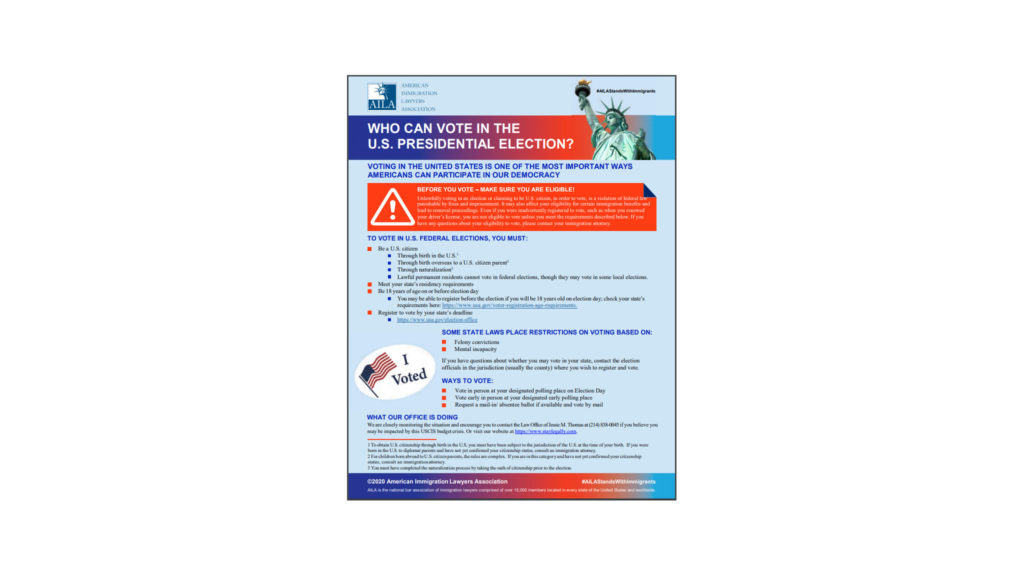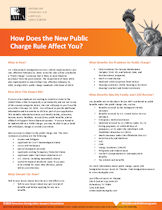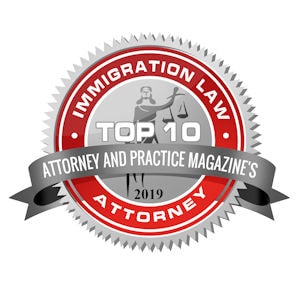Presidential Elections: Who Can Vote?
Who Can Vote in Presidential Elections?
Before You Start – Make Sure You Are Eligible!
Unlawfully voting in an election or claiming to be a U.S. citizen, in order to vote, is a violation of federal law punishable by fines and imprisonment. It may also affect your eligibility for certain immigration benefits and lead to removal proceedings. If you have any questions about your eligibility to vote, please contact an experienced immigration attorney.
To Vote In U.S. Federal Elections You Must:
- Be a U.S. Citizen
- Through Birth In The U.S.1
- Through Birth Overseas To A U.S. Citizen Parent2
- Through Naturalization3
- Lawful Permanent Residents (LPRs) cannot vote in federal elections, though they may vote in some local elections.
- Meet Your State’s Residency Requirements
- Be 18 Years of Age On or Before Election day
- You may be able to register before the election if you will be 18 years old on Election Day; check your state’s requirements here: https://www.usa.gov/voter-registration-age-requirements .
- Register to Vote by Your State’s Deadline
Some State Laws Place Restrictions on Voting Base On:
- Felony Convictions
- Mental Incapacity
If you have questions about whether you may vote in your state, contact the election officials in the jurisdiction (usually the county) where you wish to register and vote.
Ways To Vote
- Vote in person at your designated polling place on Election Day
- Vote early in person at your designated early polling place
- Request a mail-in/ absentee ballot if available and vote by mail
1,2,3 View the printable factsheet for additional information on U.S. Citizenship and Naturalization requirements for voting.
Questions About Your Voting Eligibility? Contact An Experienced Immigration Attorney
Unlawful voting may affect your eligibility for certain immigration benefits and lead to removal proceedings. If you or your family members have any questions about your voting eligibility, it is important to consult with a qualified immigration attorney. Call immigration attorney Jessie M. Thomas at (214) 838-0045 or schedule a consultation.
Printable Factsheet To Help You Understand Who Can Vote In The U.S. Presidential Elections
View online, download, or print and share with others
Who Can Vote in The U.S. Presidential Election?




 The list recognizes the significant achievements of those attorneys whose practice elevates the standards of their State’s Bar as well as provided a benchmark for other practitioners. The list encompasses industry leaders who have been featured on networks such as ABC, NBC, CBS, MSNBC, FOX, the New York Times, The Washington Post, Time and Newsweek.
The list recognizes the significant achievements of those attorneys whose practice elevates the standards of their State’s Bar as well as provided a benchmark for other practitioners. The list encompasses industry leaders who have been featured on networks such as ABC, NBC, CBS, MSNBC, FOX, the New York Times, The Washington Post, Time and Newsweek.